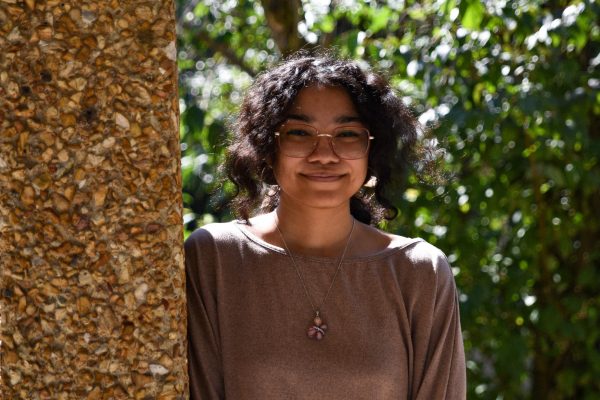Art teacher Katy Mangrich sits in her classroom, smiling for a picture. During her time in high school, Mangrich learned several lessons that she now passes on to her son. “The biggest life lesson that I learned is honesty. I wouldn’t say I was the best teenager, but I learned very quickly in high school to always be forthcoming and honest with my parents because it always ended up serving me better in the long run. [My parents] might have been upset with me [and the mistake I made], but I wasn’t going down the rabbit hole of a lie because that was just going to get me into more trouble,” Mangrich said. “I passed [that lesson] along to my nephew. Honesty is always your best approach; just don’t lie. I say that to my son all the time. There’s no advantage to lying, [and] that’s a huge takeaway [from] how my parents raised me.”
What school did you go to?
For elementary school, I went to Christ Prince of Peace. For high school, I went to a Nerinx Hall in Webster Groves, Mo. Both [were] Catholic private schools.
How was your childhood homelife?
It was typical. I had both my mom and dad in the home, so we lived a very traditional life. I have an older sister and a younger brother, and we are all about two years apart. [There was] lots of arguing and fighting, like you would normally do with your siblings. My younger brother is like a comedian, so there was always lots of laughter from his little quirky things that he would do that we would always get a kick out of.
What has changed, what hasn’t?
The introduction of cell phones is the biggest thing with regard to how things have changed. [Before], there wasn’t a way to track your kids. In that sense, we were more independent. If we went out playing, we had to be home by the time the street lights went on. We would beg for dinner as early as we could so we could get back outside and play [longer]. And [we had] lots of interaction with the neighborhood kids. We had a couple of
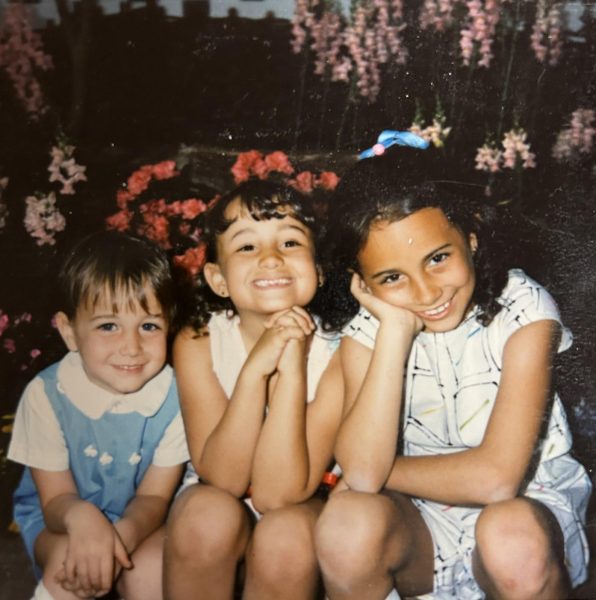
When did you know you wanted to be a teacher and teach this subject?
Growing up, [my] mom was a teacher, so she always had textbooks and different materials that they didn’t use at school anymore [that] she would bring home. I had a full classroom set up in our basement. When [my sister and I] would play with dolls, for instance, it would be in an education setting. I would be teaching on the board using chalk, and I’d have textbooks; it was almost inherent in the sense that my mom had the materials for us. So, I would say that started fairly early, but I didn’t want to go into teaching when I graduated high school. I was in all art classes my junior and senior year in high school, specifically my senior year. I might have had one class sprinkled in there in general [education]. Other than that, it was all art classes. I knew I wanted to do something with art. My art teacher told me if I want to make a career out of art, I should go into graphic design —this was the beginning of when graphic design was coming up as an actual career — and that’s the route I took. I was a graphic designer for about eight or nine years in Denver, Colo., and when I got pregnant and I had my son, I wanted to move back to St. Louis to be around my family. That’s when I succumbed to the fact that my destiny was always to teach. It combined with what I always knew I loved the most, which is art.
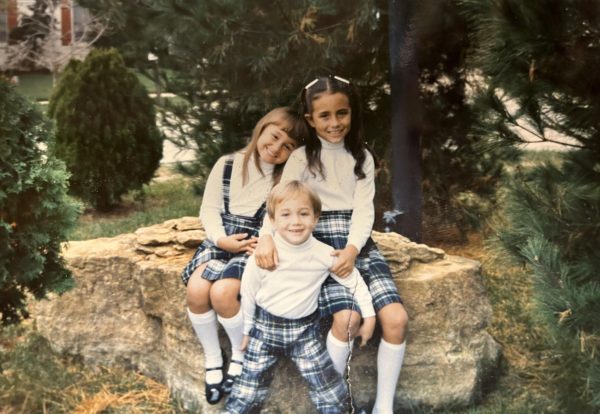
Tell me a childhood story that always makes you smile.
My dad is super quirky [and] always has been. He lost his filter at a young age, so he would do things all the time that would be embarrassing to my siblings; for some reason, I always found humor in it. For instance, we were driving down the highway one day, and there was this really small car that had this gigantic canoe strapped on top of it. [My dad] pulled up in our minivan, right next to the car and then started paddling, like he was in the canoe. Everybody in the car was just so embarrassed, but I was dying laughing. I thought it was hilarious. Another time, we were in Florida, and we were going over to my uncle’s house. There was a little girl riding her bike in the street, and my dad slowed down right next to her and whispered, ‘That’s the way to make an angel, sweetie.’ We were all like, ‘Oh my gosh, you can’t say that to a little girl.’ It was just his quirky way of life. I felt like I could connect with him all the time because I could laugh about it, whereas my siblings, still to this day, get embarrassed by it.
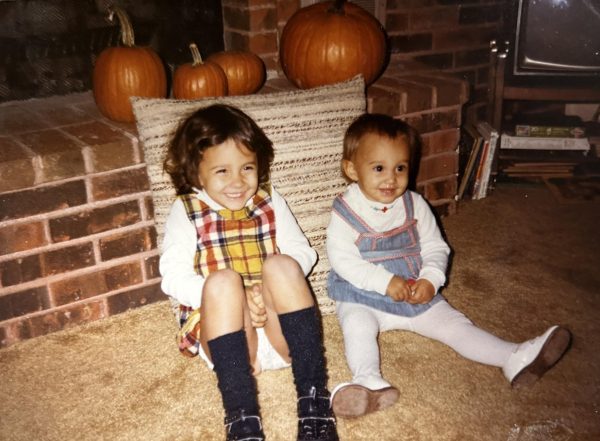
What things make you nostalgic when you see/hear/smell/ feel them?
My dad was from Puerto Rico. He lived in Puerto Rico for the first eight or nine years of his life, and then his parents moved to Florida. We visited Florida all the time. We never flew, only drove [Because of that], I would say the smell of orange trees. When you cross into Florida, it was that smell; still, to this day, as soon as I smell it, I know what that smell is and it automatically brings me right back to childhood and visiting my grandparents. The rides at Disney are also very nostalgic for me. “‘It’s a Small World’ was always my favorite ride, and I would always beg to go on it, and nobody else in my family ever wanted to go on. So I would say Disney would be another nostalgic experience.

![Art teacher Katy Mangrich sits in her classroom, smiling for a picture. During her time in high school, Mangrich learned several lessons that she now passes on to her son. “The biggest life lesson that I learned is honesty. I wouldn't say I was the best teenager, but I learned very quickly in high school to always be forthcoming and honest with my parents because it always ended up serving me better in the long run. [My parents] might have been upset with me [and the mistake I made], but I wasn't going down the rabbit hole of a lie because that was just going to get me into more trouble,” Mangrich said. “I passed [that lesson] along to my nephew. Honesty is always your best approach; just don’t lie. I say that to my son all the time. There's no advantage to lying, [and] that's a huge takeaway [from] how my parents raised me.”](https://pwestpathfinder.com/wp-content/uploads/2024/01/Screenshot-2024-01-26-10.10.12-AM.png)

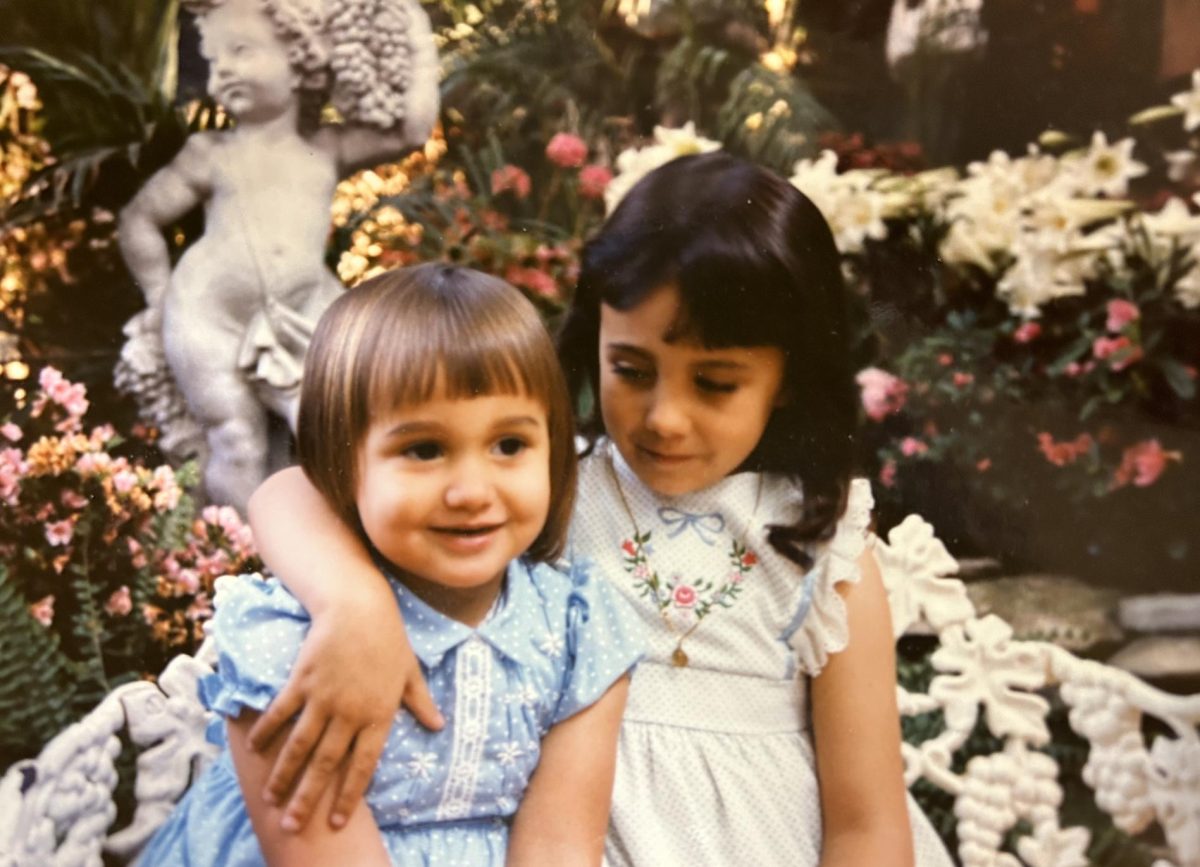
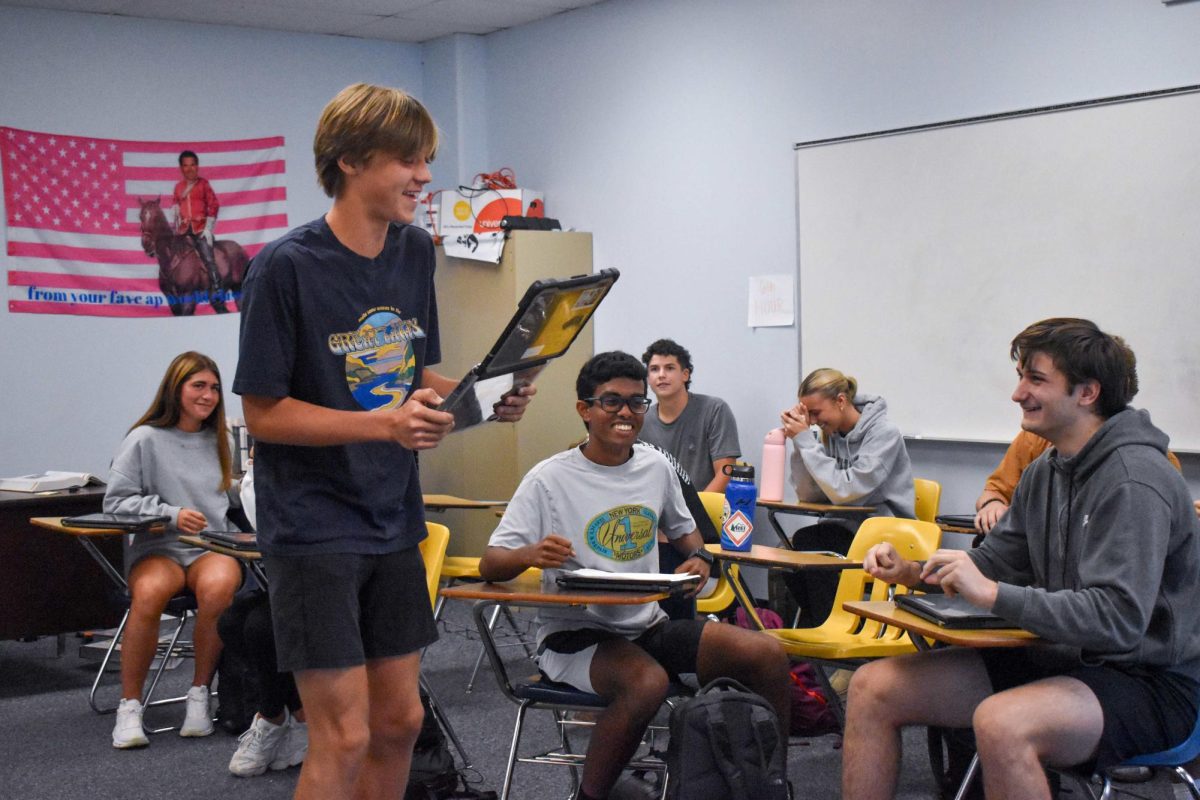
![Freshman Daphne Stokes looks at a table with Veterans Day flyers and information on Nov. 11. Stokes, along with other West High students, like senior Alexander Lewinski, passed by the table in the cafeteria with army recruitment information and giveaways for students to observe during lunch. “Talking with [the recruiters] has definitely helped me [find] where I wanted to go, more than anything else,” Lewinski said.](https://pwestpathfinder.com/wp-content/uploads/2025/11/DSC_1227-2-1200x800.jpg)
![Helping a customer, print room assistant Gretchen Williams operates her booth at the West High Craft Fair from Oct. 25-26. This was Williams’ first time participating in the Craft Fair with her new craft shop, Gs Beaded Boutique. “People have always said, over the years, ‘you should open something.’ [I replied that] I would rather just make [my crafts as] gifts for people. I just started [the online store] up, and it's been okay. I'm always surprised [by] how many views I get and [the] people from different states buying things; somebody from Alaska bought something the other day.”](https://pwestpathfinder.com/wp-content/uploads/2025/11/DSC0451-2-1200x799.jpg)
![Gesturing toward the club’s name on the board, Global Youth Aid co-president year Daniah Alsagheer discusses upcoming service projects with members during a meeting on Oct. 30. “We might be one club at one school, but together, we’re [part of] something much bigger,” Alsagheer said.](https://pwestpathfinder.com/wp-content/uploads/2025/11/DSC00949-1200x800.jpg)
![Focused on providing exceptional service, sophomore Darsh Mahapatra carefully cleans the door of a customer’s car. Mahapatra has always believed his customers deserve nothing less than the best. “[If] they’re trusting us with their car and our service, then I am convinced that they deserve our 100 percent effort and beyond,” Mahapatra said.](https://pwestpathfinder.com/wp-content/uploads/2025/10/DSC_0018-1200x800.jpg)
![Sophomore Aleix Pi de Cabanyes Navarro (left) finishes up a soccer game while junior Ava Muench (right) warms up for cross country practice. The two came to Parkway West High School as exchange students for the 2025-2026 school year. “The goal for the [exchange] program is to provide opportunities for both Parkway students and our international exchange students to learn about other cultures, build connections and become confident, capable, curious and caring — Parkway’s Four C’s — in the process,” Exchange Program Lead Lauren Farrelly said.](https://pwestpathfinder.com/wp-content/uploads/2025/10/Feature-Photo-1200x800.png)

![Gazing across the stage, sophomore Alexis Monteleone performs in the school theater. The Monteleone family’s band “Monte and the Machine” has been releasing music since 2012, but Alexis started her own solo career in 2024 with the release of her first single, Crying Skies. “My whole family is very musical, [and I especially] love writing [songs with them],” Monteleone said.](https://pwestpathfinder.com/wp-content/uploads/2025/09/DSC7463-1200x798.jpg)
![Amid teaching a lesson to her AP Calculus BC class, Kristin Judd jokes alongside her students in their funny remarks. Judd has always enjoyed keeping the mood light in her classroom, along with on the volleyball court. “[I enjoy] that side talk where you see [or] overhear a conversation and chime in, or somebody says something funny,” Judd said.](https://pwestpathfinder.com/wp-content/uploads/2025/09/image-1200x730.jpg)
![Eyeing the ball, junior Ella McNeal poses for her commitment pictures at Clemson University. McNeal’s commitment comes after months of contact with top Division 1 soccer programs. “ It has taken a lot to get to where I am, but I know that [what] I've already been through is just the beginning, and I can't wait for what is to come,” McNeal said.](https://pwestpathfinder.com/wp-content/uploads/2025/09/IMG_4926-1200x900.jpeg)
